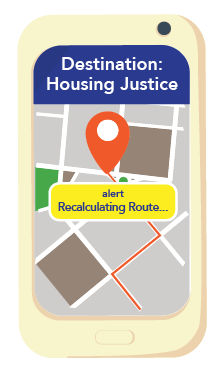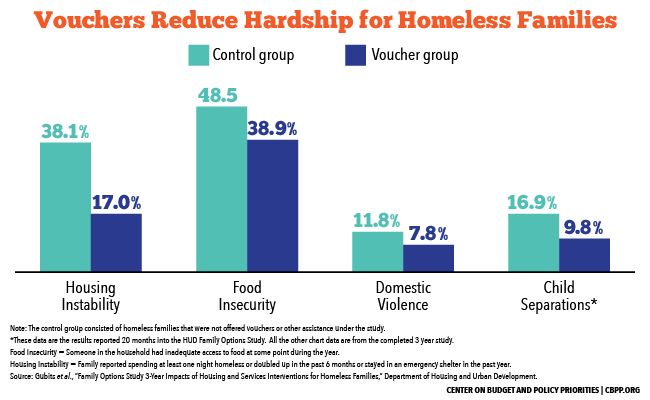Threats to housing by the New Congress
Apr 11, 2017
Public Housing and Other Affordable Housing Budgets Threatened
Affordable housing programs could face steep budget cuts in the coming year. President Trump has submitted a budget for FY18 that proposes deep cuts to non-defense programs, including those at HUD, in order to increase defense spending. Mr. Trump proposes to cut overall HUD funding by 13% or $6.2 billion compared to FY16 levels. When compared to funding levels needed for FY17, the proposed cuts amount to a 15% or $7.5 billion reduction. Even if Congress rejects Mr. Trump’s proposals, low spending caps required by a 2011 law will be in effect for FY18. Congress must lift these caps and ensure all critical affordable housing programs are adequately funded.
At the time this Tenant Talk goes to print, Congress has not passed its FY17 spending bills. HUD needs approximately $1.8 billion more in FY17 than FY16 spending levels just to maintain current program levels and to keep all families receiving rental assistance in their homes. If Congress provides HUD only the same level of funding it received in FY16, an estimated 100,000 or more housing vouchers could be lost this year. Such level funding would almost certainly also negatively impact other HUD programs like public housing, homeless assistance grants, and other programs that help make housing affordable for low income seniors, people with disabilities, families with children, and individuals.
The situation could be even worse for FY18 if the low spending caps are not lifted or even deeper cuts are applied. Even continued level funding for these programs would cause thousands of families to lose access to stable housing, putting them at increased risk of homelessness; sequester caps or deeper cuts would be devastating.
President Trump proposes to eliminate Community Development Block Grants, the HOME Investment Partnerships program, Choice Neighborhoods grants, NeighborWorks America, and the Self-help Homeownership Opportunity Program. His budget also would eliminate the U.S. Interagency Council on Homelessness, legal aid services that provide the only resource available to help deeply low income people avoid unwarranted evictions, and resources to help low income families heat their homes in winter.
Advocates should contact their Members of Congress to stress the importance of full funding for all affordable housing programs. NLIHC calls on Congress to reject Mr. Trump’s proposed budget and to lift the spending caps—with equal relief for defense and other spending—to ensure that affordable housing programs receive the highest amount of federal funding possible in FY17 and FY18.
Affirmatively Furthering Fair Housing Rule Threatened
 The Fair Housing Act of 1968 prohibits housing discrimination based on race, color, national origin, religion, sex, disability, and family status. It also requires all federal agencies to operate their programs “in a manner affirmatively to further” fair housing. This obligation extends also to public housing agencies (PHAs), cities, counties, and states receiving federal housing or community development funds. Over the nearly five decades since the law passed, those required to follow the law had little guidance on how to carry it out. They essentially had just to sign a pledge indicating that they were complying with the law.
The Fair Housing Act of 1968 prohibits housing discrimination based on race, color, national origin, religion, sex, disability, and family status. It also requires all federal agencies to operate their programs “in a manner affirmatively to further” fair housing. This obligation extends also to public housing agencies (PHAs), cities, counties, and states receiving federal housing or community development funds. Over the nearly five decades since the law passed, those required to follow the law had little guidance on how to carry it out. They essentially had just to sign a pledge indicating that they were complying with the law.
In 2009, the Obama Administration began meeting with many stakeholders to figure out what most of them would accept in an Affirmatively Furthering Fair Housing (AFFH) rule. In 2013, HUD published a proposed rule for public comment. A final rule was published in 2015, providing guidance and uniform standards. HUD also provided data and computer mapping tools to help identify patterns of racial and ethnic concentrations so that PHAs, states, and local communities could better meet their fair housing obligations. The AFFH rule is designed to help promote fair housing choice, which includes preserving existing affordable housing like public housing, revitalizing communities that have experienced disinvestment, and preventing displacement, as well as helping people move to communities with better schools, good grocery stores, and no environmental hazards.
More information on AFFH is available in our previous special AFFH issue of Tenant Talk (Vol. 7, Issue 1) and on the NLIHC website at: http://nlihc.org/issues/affh
Since the AFFH rule was published, some in Congress have attempted to spread untruths about it, and the current session of Congress looks to be no different. A common tactic of AFFH opponents is to falsely claim that the rule is the federal government’s attempt to take planning decisions from state and local governments. In January, Representative Paul Gosar (R-AZ) and Senator Mike Lee (R-UT) introduced companion bills, titled the “Local Zoning Decisions Protection Act of 2017.” Both Mr. Gosar’s bill (H.R. 482) and Mr. Lee’s bill (S. 103) would prohibit using federal funds for HUD’s database that contains information on patterns of race- and income-based concentrations.
AFFH is a crucial part of the Fair Housing Act and it must be preserved and finally made meaningful. NLIHC encourages you to tell your U.S. representative to oppose the Gosar bill (H.R. 482) and your U.S. senators to oppose the Lee bill (S. 103), and to oppose any efforts to damage fair housing. Your efforts helped defeat similar bills last year, and with your help we can do it again now.
Please stay updated on this issue by subscribing to Call to Action emails at www.nlihc.org. While on the website, also make sure to view the “Take Action” page so that you know when your Members of Congress need to hear from you.
Threats to the Housing Choice Voucher Program
Millions of Americans depend on Housing Choice Vouchers—commonly known as Section 8—to pay their rent each month. Affordable housing advocates are wary that funding for those vouchers may be threatened under the new Administration and Congress.

Each year, Congress creates a budget to pay for key government services and programs. This includes funding for HUD and USDA Rural Development housing programs, as well as funding for departments like the Department of Defense, the Department of Education, Veteran’s Affairs, and others. Congress decides how much funding it will provide to each department and the president signs this budget act into law.
Each year as rents increase but wages do not keep pace, housing programs become more expensive to operate—with average inflation costs around 3% annually. Congress must account for this increase as they create the federal budget. It is estimated HUD will need $1.8 billion more in FY17 to continue funding the same number of vouchers and other forms of rental assistance provided in FY16, while keeping other HUD programs intact. Consequently, Congress will need to provide the additional $1.8 billion just to maintain current program levels. If Congress fails to do so, more than 100,000 households currently using vouchers will not be able to renew them.
Vouchers will face greater threats in the FY18 budget because low spending caps will return. These spending caps will make it even more difficult for Congress to meet the growing costs of rental assistance. In addition, Congress may impose deeper cuts.
In order to protect vouchers in your community and advocate for support for families who do not currently receive vouchers, contact your Member of Congress at 202-224-3121 and ask them to fund the Housing Choice Voucher program at the highest level possible.
